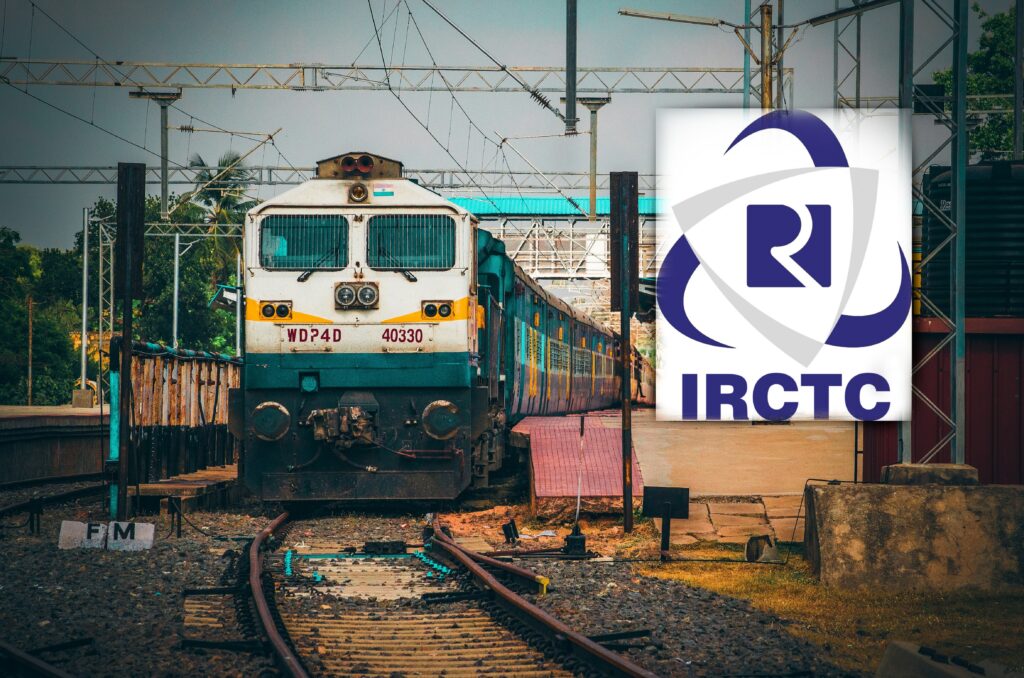
Table of Contents
Shorter Ticket Booking Period for IRCTC: Will It Affect Stock Performance?
Recent updates regarding IRCTC’s ticket booking policy include a major change: as of November 1, 2024, the advance reservation period (ARP) for booking train tickets has been reduced from 120 days to 60 days. This adjustment, announced by the Indian Railways, means that travelers can only book tickets up to 60 days in advance, compared to the previous four-month period. This change aims to streamline operations, reduce speculative bookings, and improve flexibility within the booking system. However, any reservations made under the 120-day rule before October 31, 2024, will remain valid under the original terms
Additionally, certain express trains, like the Taj Express, which already have shorter booking windows, remain unaffected by this policy change. The 365-day ARP specifically available for foreign tourists will also continue, allowing international travelers to plan far in advance without disruption. This policy shift essentially reverts back to the pre-2015 system, where a 60-day reservation period was the norm . Now let’s understand will it impact it’s market performance.
The Indian Railway Catering and Tourism Corporation (IRCTC) is one of the most discussed public sector stocks in the Indian stock market. Known for its unique monopoly in railway ticketing, catering, and tourism, IRCTC has captured investors’ attention due to its steady growth potential and its critical role in India’s railway infrastructure. This article will take a closer look at IRCTC’s fundamentals to help you decide if it’s a worthy addition to your investment portfolio.
Introduction to IRCTC
IRCTC, a subsidiary of Indian Railways, is responsible for managing online ticketing, catering, and tourism services across India’s extensive railway network. Since its listing on the National Stock Exchange (NSE) and Bombay Stock Exchange (BSE) in 2019, IRCTC has grown into a prominent public sector stock, reflecting India’s economic resilience and infrastructure growth.
What Makes IRCTC Unique?
IRCTC operates in a monopolistic position, being the sole provider of certain critical services within Indian Railways. This unique position makes it resistant to competition and offers it a steady revenue stream, especially in online ticket booking, catering, and packaged drinking water sales (under the brand “Rail Neer”).
IRCTC Stock Performance Overview
Since its IPO, IRCTC has delivered substantial returns to its investors, thanks to its unique market position and the steady rise in rail and tourism activities in India. However, like most stocks, IRCTC’s price has been subject to market volatility, especially with changing government policies and global economic trends.
Fundamental Analysis of IRCTC
Revenue and Profit Growth
IRCTC has shown consistent growth in revenue, largely driven by the increase in online ticketing and catering. For FY2023, IRCTC reported revenue growth, benefiting from rising railway connectivity and government initiatives to modernize Indian Railways.
| Company Name | IRCTC |
|---|---|
| CMP Rs. | 831.75 |
| P/E | 55.93 |
| Mar Cap Rs.Cr. | 66540 |
| Div Yld % | 0.78 |
| NP Qtr Rs.Cr. | 307.68 |
| Qtr Profit Var % | 13.18 |
| EPS 12M Rs. | 14.83 |
| Debt Rs.Cr. | 60.35 |
| Ind PE | 55.93 |
| Profit growth % | 17.58 |
| Sales growth % | 18.91 |
Impact on market performance
Growth Drivers for IRCTC
Increasing Rail Connectivity
With the Indian government’s ongoing initiatives to expand and modernize railway connectivity, IRCTC stands to benefit from increased passenger traffic, directly boosting its revenue from ticketing and catering services.
Expanding Tourism Industry
As India emerges as a popular travel destination, IRCTC’s tourism segment has ample room for growth. The company’s tour packages and luxury train services like the Maharaja Express attract domestic and international travelers, adding to revenue.
Challenges and Risks for IRCTC
- Government Regulation: Being a government-owned company, IRCTC is subject to regulatory constraints and policies that could impact its pricing strategy and revenue.
- Dependence on Indian Railways: IRCTC’s fortunes are closely tied to Indian Railways, meaning any downturn in railway performance can impact IRCTC’s revenue streams.
- Market Saturation: Although IRCTC enjoys a monopoly in many areas, future growth could be limited without diversification or international expansion
IRCTC Valuation Analysis
Given its monopolistic position and steady revenue generation, IRCTC has attracted a high valuation in the market. Although the stock may appear overvalued based on traditional metrics, its growth potential and low competition make it a unique investment opportunity. For long-term investors, this high valuation could be justified if IRCTC continues to expand and generate consistent profits.
Prospects for Long-term Investors
For investors with a long-term horizon, IRCTC offers a rare combination of growth, stability, and government backing. Its monopoly in railway ticketing and steady expansion into tourism make it well-suited for investors looking to add a public sector growth stock to their portfolios.
Conclusion: Is IRCTC Stock a Buy?
IRCTC offers a unique investment opportunity in the Indian market, with monopolistic advantages and diverse revenue streams. While it does face risks, such as government regulations and dependency on Indian Railways, the company’s solid financials and growth prospects make it a favorable choice for long-term investors. However, given its high valuation, it’s wise to assess if IRCTC fits your investment strategy and risk tolerance before buying.
